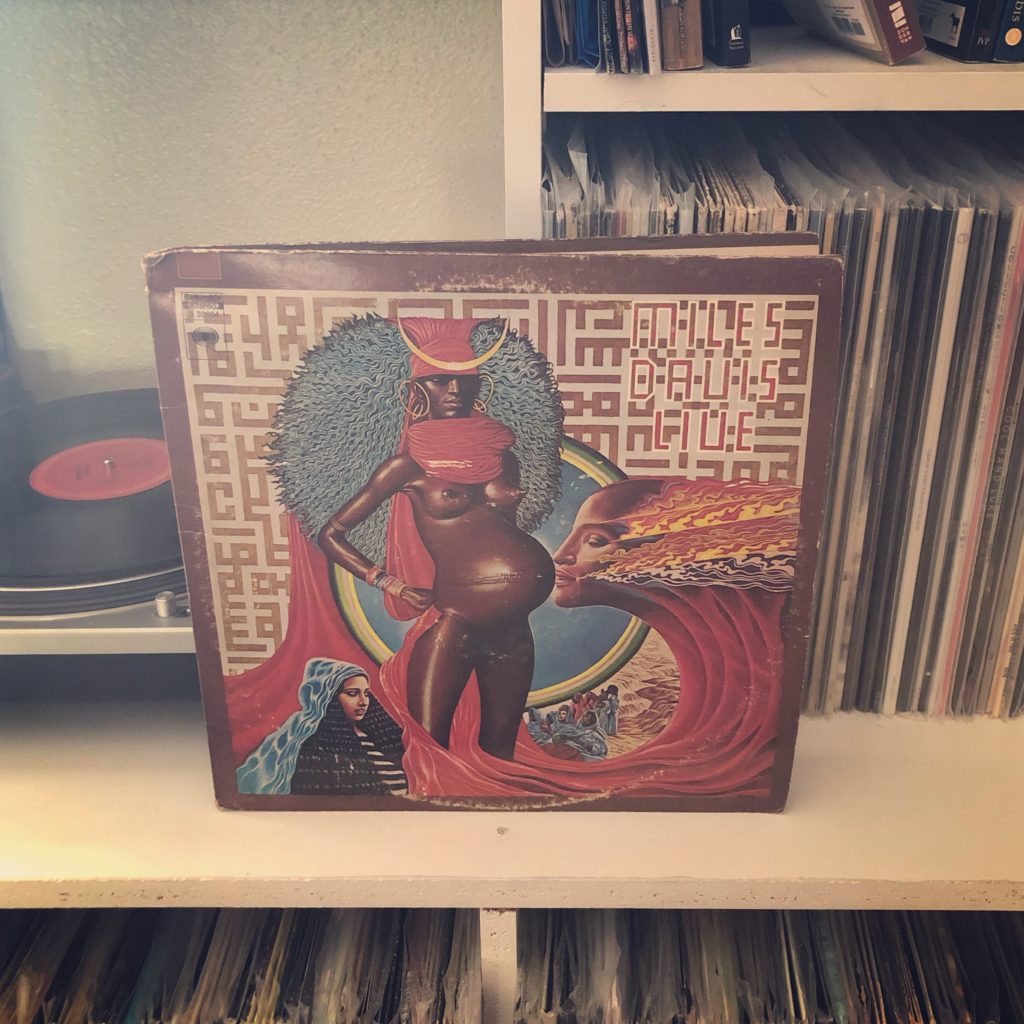
Miles Davis’ monstrous 1971 double album purports to be two things: Live, and Evil.
Live? It’s unlike any other live record ever. A fiery 1970 performance at the Cellar Door was stitched together and interjected with studio tracks.
Evil? This record is positively wicked. While Bitches Brew found Davis adopting elements of rock and roll to create a mystic jazz fusion, Live-Evil goes even further. No rock band has ever rocked harder than these jazz cats. “What I Say” drives with a relentless straight-ahead rock beat for twenty-one minutes. John McLaughlin, who had spent the last year with his new project Mahavishnu Orchestra, plays with a fury that transcends even the molten passion of that project.
Of the rest of the players, drummer Jack DeJohnette is the only other member of the Bitches Brew sessions to play on the live cuts (Herbie and Chick appear in the hushed studio tracks). The Cellar door show was apparently filled with performances of Bitches Brew tracks, but you’d never know it by hearing. They are so warped with reimagining that they are entirely unrecognizable. “Gemini/Double Image” is a live version of a tune by frequent collaborator Joe Zawinul, but it sounds absolutely nothing like Joe’s version.
The compositions are buried deep below the thumping fury of Mike Henderson’s electric bass, Jack DeJohnette’s frantic drumming, Kieth Jarrett’s pounding electric piano, and Miles trumpet, which he played through a wah pedal. When the quieter moments break, it’s hardly a relief—they are the calm before the storm, rife with all the tension of a still Nebraska sky before a twister comes through to lay waste to everything in its path.
At a staggering 101 minutes in length, this is one of the densest, most intimidating records in my collection. It is immense and unknowable, an eldritch behemoth of an album, risen from the depths bent on destruction. But there is bliss in giving yourself up to that destruction. Opener “Sivad” is thumping and monstrous, but funky. In fact, it’s almost sultry. You’re torn between wanting to run for your life and wanting to dance. And that fearsome funk informs all of the tracks here. Even at its most disturbing, it’s irresistible and enticing.
But perhaps this record can best be described by Conrad Roberts’ poem that ends the record:
Inamorato
Mission: music, masculinity
Master of the art: music
Who is this music that which description may never justify?
Can the ocean be described?
Fathomless music
Body of all that is
Live ever lastingly
Men, initiate
Inamorato, your music art tomorrow’s unknown known life
I love tomorrow
Fathomless, indeed.